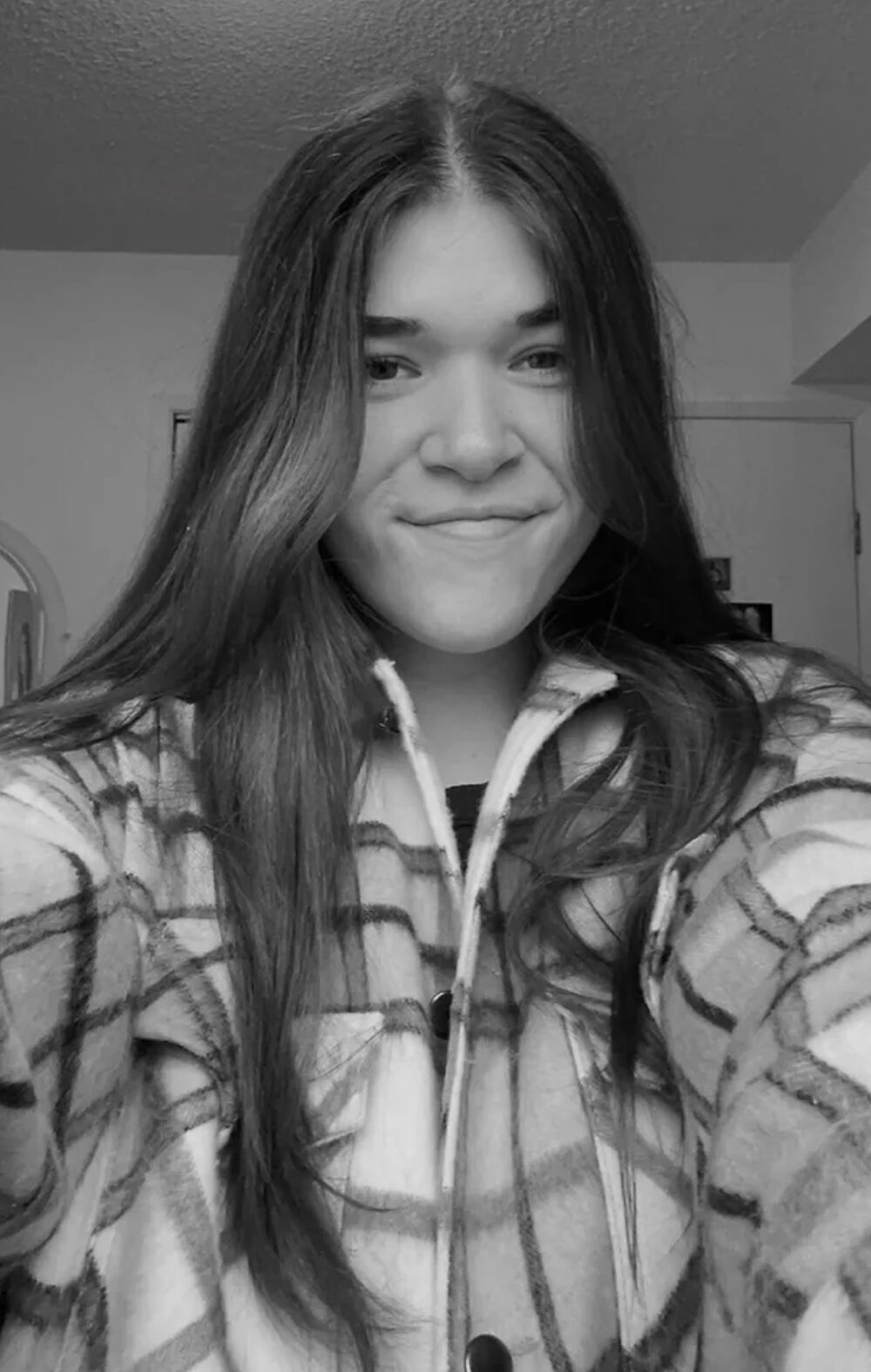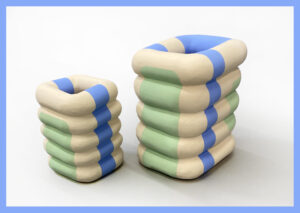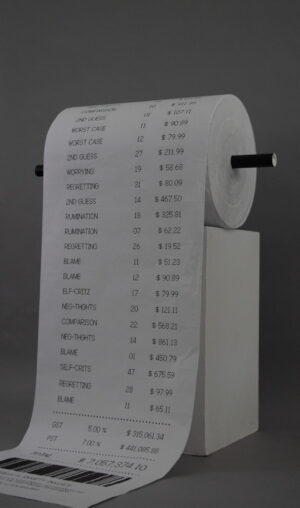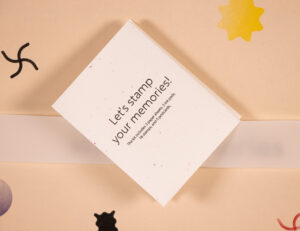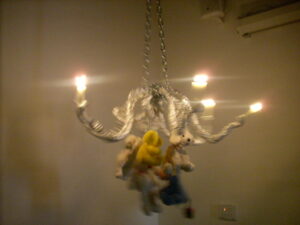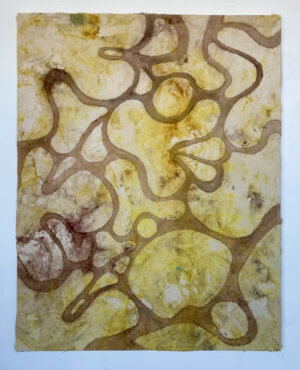Soft Tools 1 & 2
Ashlee Hick
See it On Campus: Level 1
Visitor InfoSoft Tools , can be found on the first floor in the sculpture studios. Directly to the right of the first floor entrance.
Award Recipient
Landon Mackenzie Graduation Award for Visual Arts
Soft Tools is an ongoing sculptural project dedicated to conversations between the body and the medical world.
Presented in the Emily Carr University Grad Show are the first two iterations of the Soft Tools series; an Inhaler and Epi Pen. Both medical devices have been scaled up and constructed of soft recycled materials. All text and detail work has been hand embroidered, constructed and finished.
Materials:
Recycled Fabrics ( Primarily Woven Cotton Varieties ), Thread, Embroidery Floss, Aplique, Poly-Fill
As a child growing up I was faced with many complications to my own health, as well as that of my close family and friends. Such instances vary from minor health conditions to major surgeries and diagnoses. The inspiration for this work stems from the confusion and frustration which accompanies health conversations and decisions especially around young children. The medical world often utilizes dense, cold materials, metals and plastics to deliver care to us, when nothing about those objects feel as though they care for us or are personal.
With devices such as hearing aids, insulin pumps, Epi-Pens, inhalers, etc. being so readily available and necessary to many of our survival, they can often impose a very fearful notion onto young and mature minds. Through the process of enlarging, softening, stuffing and hand detailing, I’ve begun creating more welcoming and tender versions of these everyday objects.
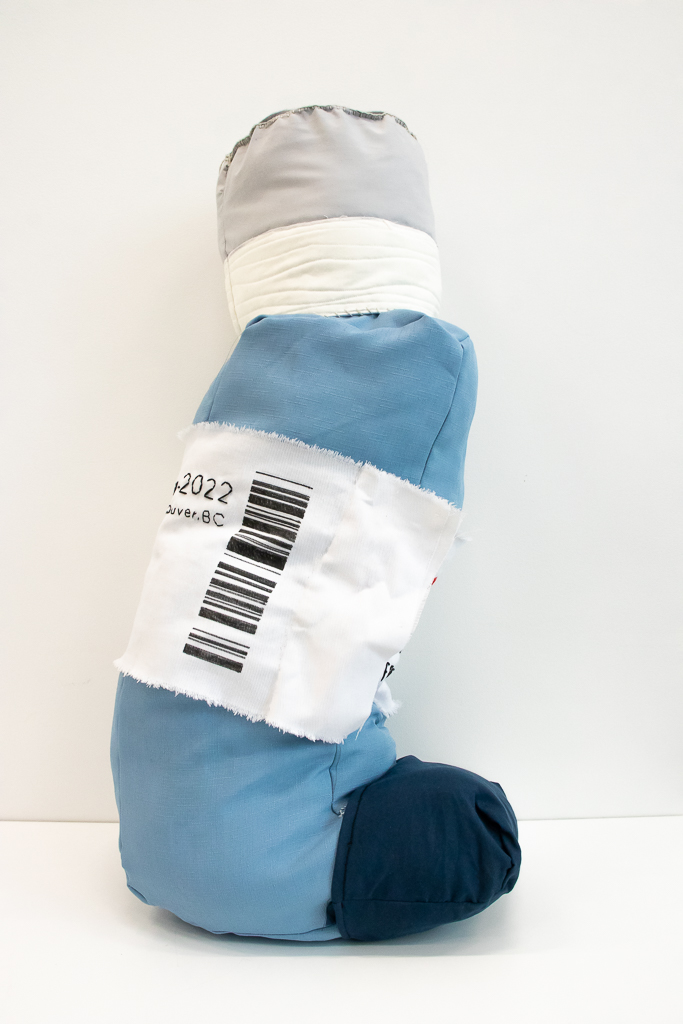
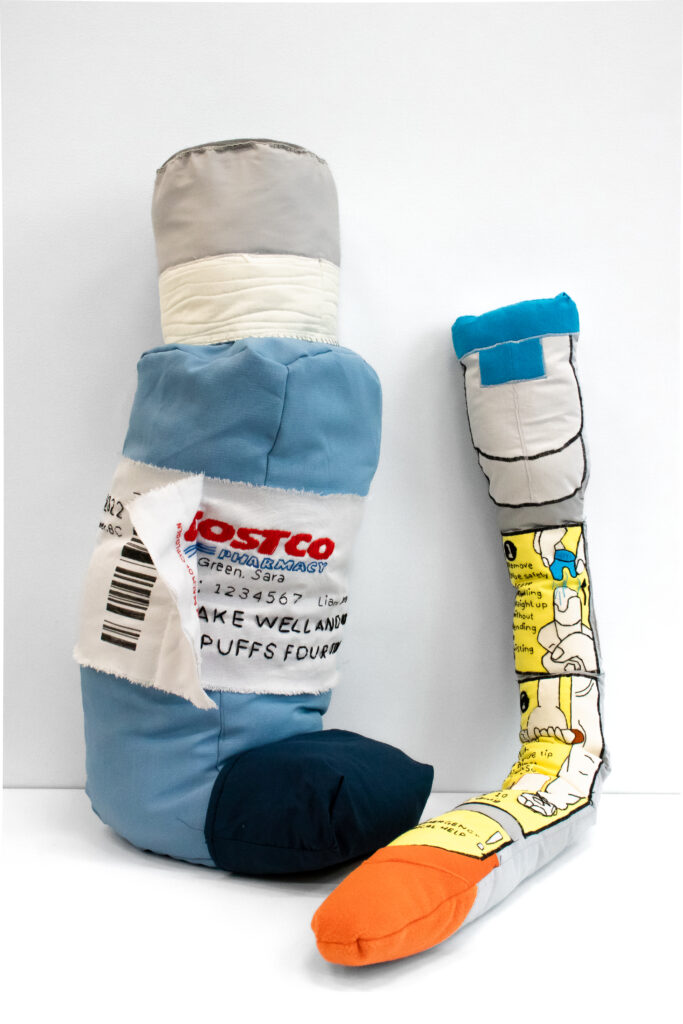
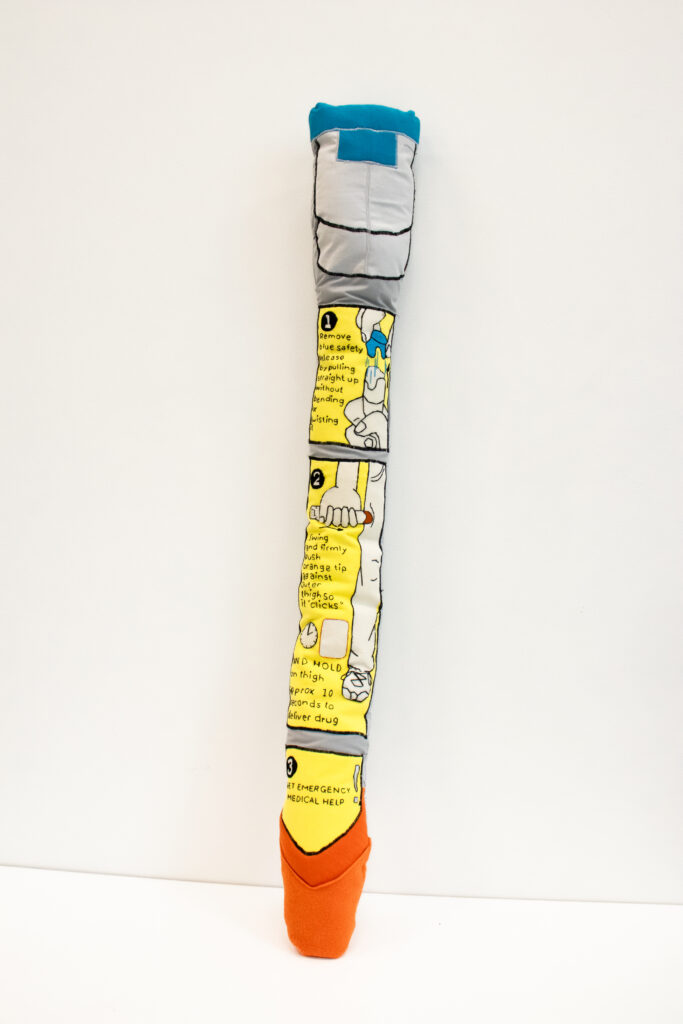
By enlarging and altering the texture of such common iconographic objects, viewers are invited to interact with the tools in new ways. Visitors at the Grad Show are welcomed to touch, bend, squeeze, and twist the works to their own desire.
The objects themselves are able to be used and interacted with in a variety of ways. Initially the project was designed to create learning tools for children, to aid them in adapting to carrying personal medical devices. The medical world is often very intimidating and frightening, especially for young minds. It was my intention to provide comfort and familiarity to kids as they learn about their bodies in a fun and engaging way.
Once created however, the work took a more conceptual approach to connecting to viewers. People became inclined to hug and hold the Inhaler and Epi Pen, shifting the initiator of care from device to user, as though the viewers needed to support the sculptures.
Many older viewers often note after seeing these tools which they have been interacting with daily for their whole lives, in a soft – large format, brings them a sense of comfort and contentment. For many these devices bring up strong emotions and attachments. The immediacy of the objects demands that they be seen and acknowledged, giving them recognition and importance.
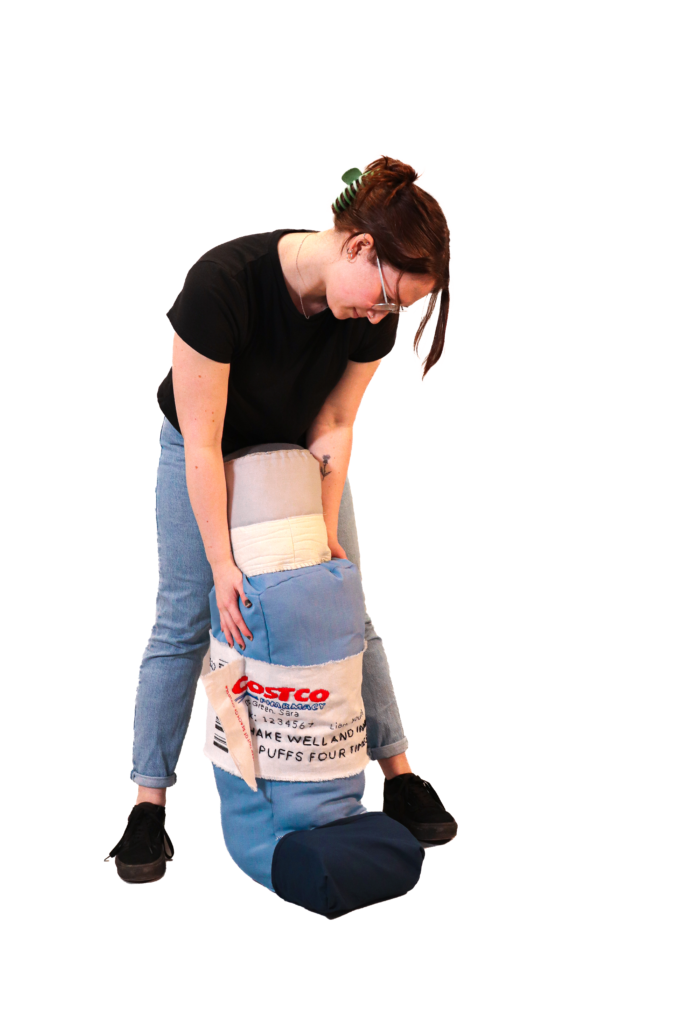
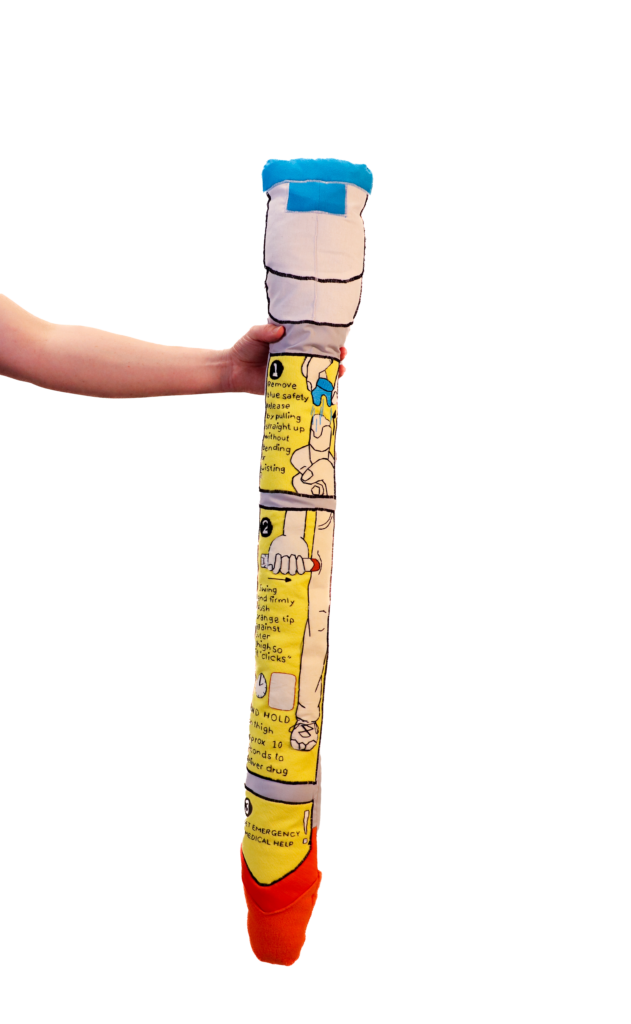
What happens when a small everyday object becomes large?
How do we handle objects differently depending on their materials?
Do we feel the same connection to things when they become absurd?
Can we interact with common objects in new ways?
How much do we truly understand about our body’s relationship with medical tools?
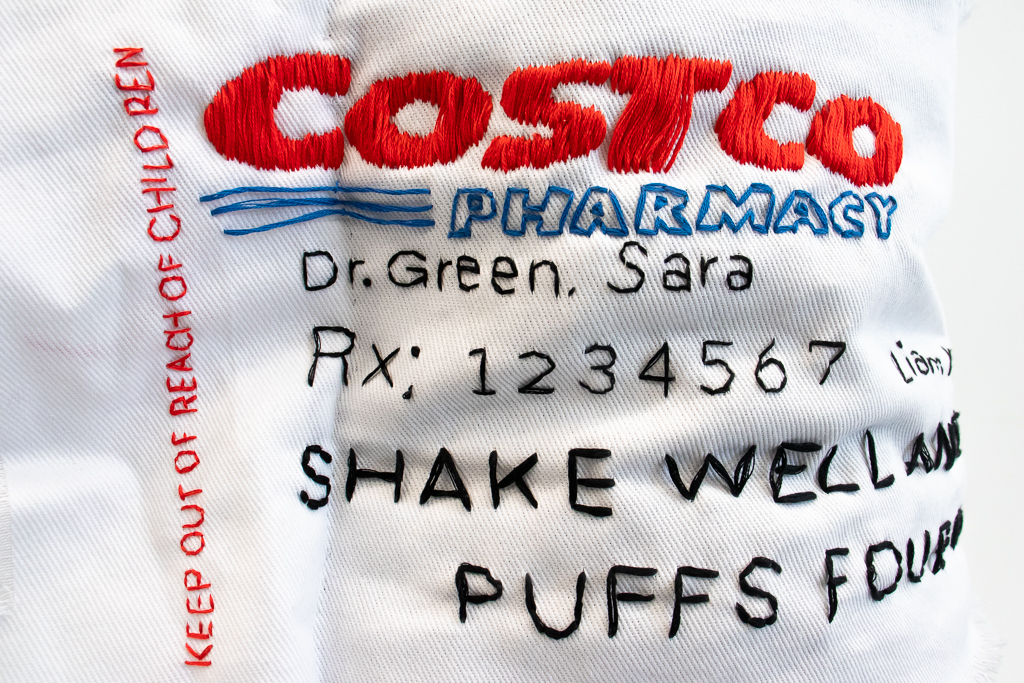
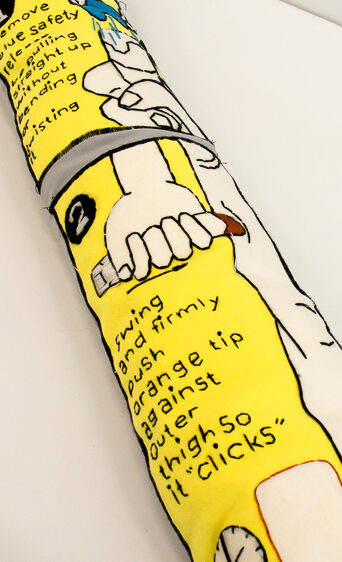
Detail image of “Inhaler” sculpture – Detail image of “Epi-Pen” sculpture
